00:36
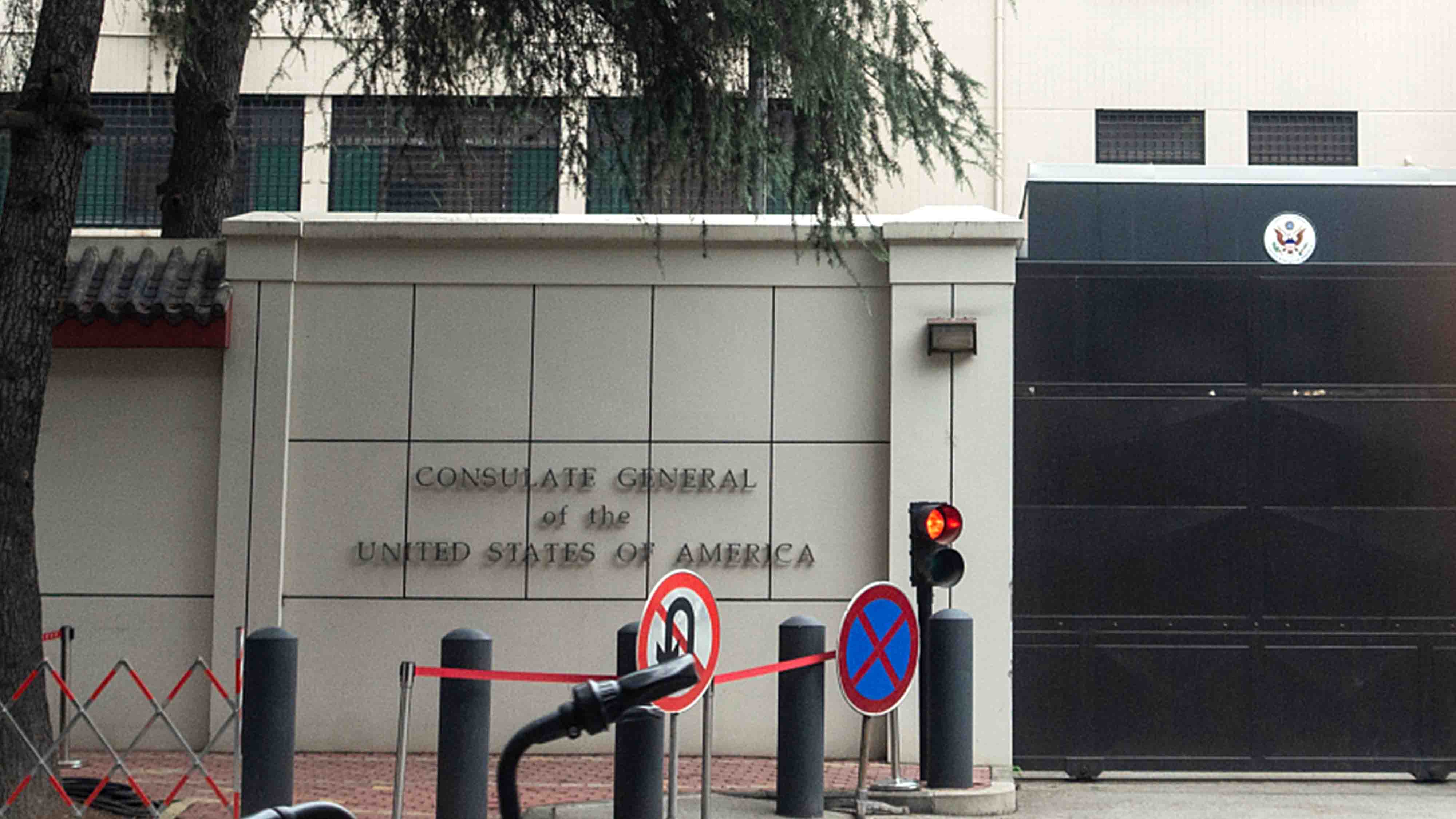
Chinese Foreign Ministry spokesperson Wang Wenbin said Friday the diplomats of the U.S. consulate general in Chengdu interfered in China's internal affairs and engaged in activities that were not in line with their diplomatic identities.
Wang said the Chinese side has lodged representations with the U.S. many times. He urged the U.S. to withdraw its decision to close China's consulate general in Houston and make efforts to bring bilateral ties back on track.
Wang added that China's consulate general in Houston is still running so far.
00:41
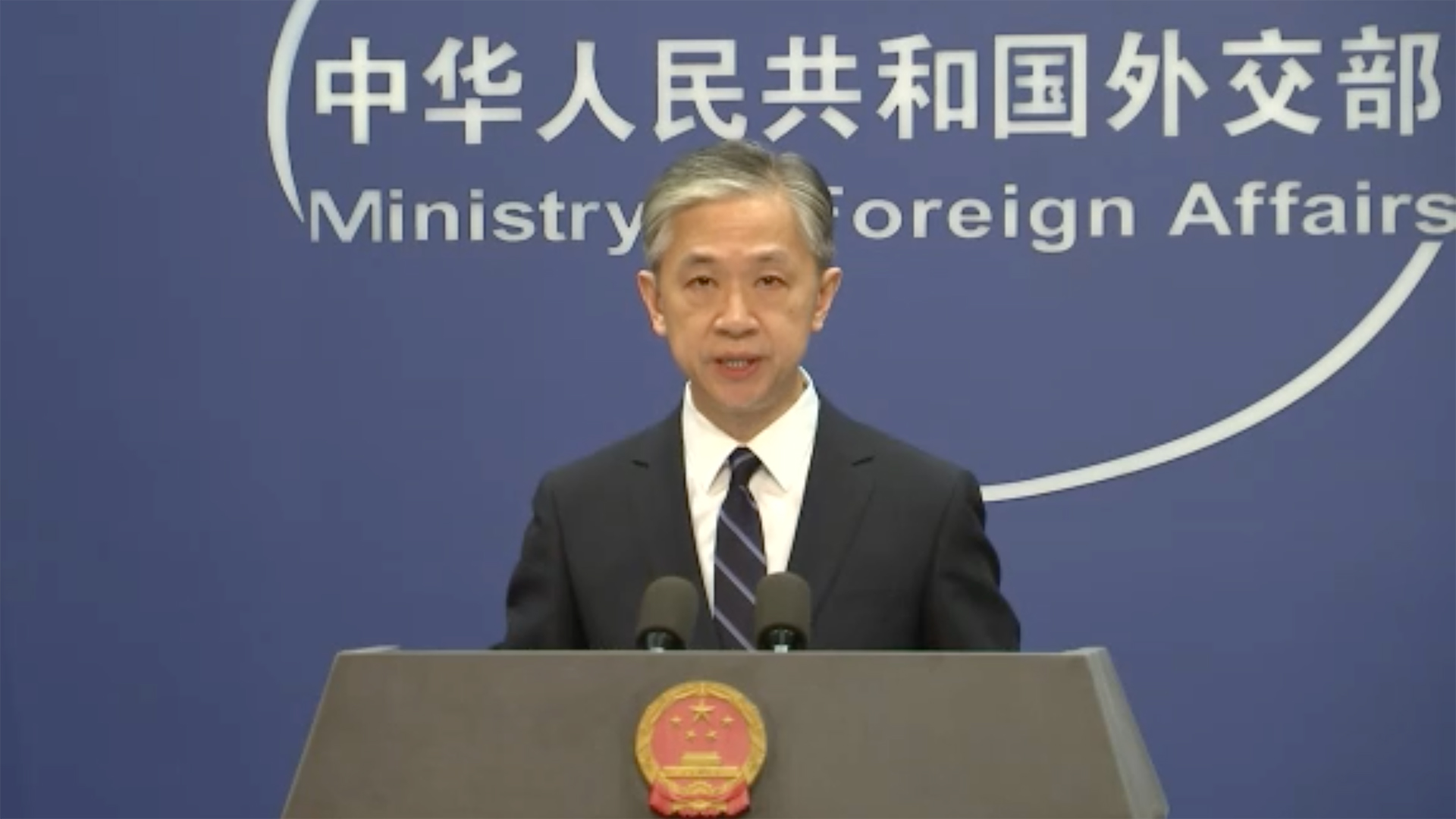
China has ordered the U.S. to close its consulate general in southwest China's Chengdu City in response to U.S. directive for China to shut its consulate general in Houston, the Chinese Foreign Ministry said in a statement on Friday.
The Chinese Foreign Ministry said that the decision was a justifiable and necessary response to the unreasonable act of the U.S. on July 21 of abruptly asking China to close its consulate general in Houston by Friday.
Shortly after the announcement, Global Times Editor-in-Chief Hu Xijin said on Twitter that China had ordered the U.S. side to vacate the consulate in 72 hours and notified them at 10 a.m. on July 24. The consulate will be shut at 10 a.m. local time on July 27.
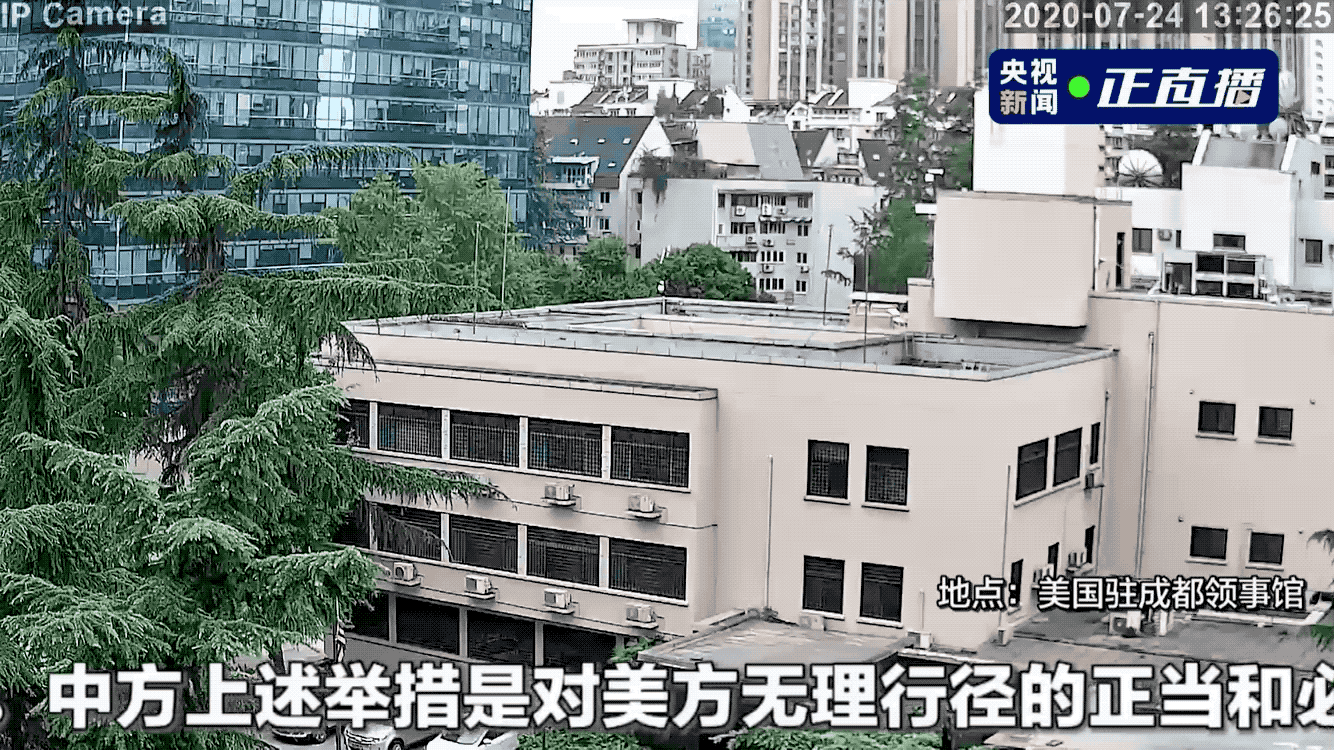
Live feed of the U.S. consulate general in Chengdu. /CCTV
Live feed of the U.S. consulate general in Chengdu. /CCTV
The ministry said that the U.S. provocation has seriously violated international law, basic norms of international relations, as well as relevant provisions of the China-U.S. consular treaty.
It has severely damaged the Sino-U.S. relations, the statement said.
"The current situation in China-U.S. relations is not what China desires to see, and the United States is responsible for all this," the statement said. "We once again urge the United States to immediately retract its wrong decision and create necessary conditions for bringing the bilateral relationship back on track."
The move, according to the U.S. State Department, was to "protect Americans' intellectual property and private information."
Chinese Foreign Ministry condemned the announcement on Wednesday and urged the U.S. to recall its wrong decision.
Lionel Vairon, a former French diplomat, said in an op-ed published with CGTN that this is the U.S.'s containment policy, trying to pressure China with every opportunity.
"Since the last six months, you've seen that for the listed companies, you've seen that for students, you've seen that for technology exchanges, you've seen that in telecoms, you've seen that on Tibet and so on. We see Hong Kong today," Vairon said. "And this is just one more way to pressure China."
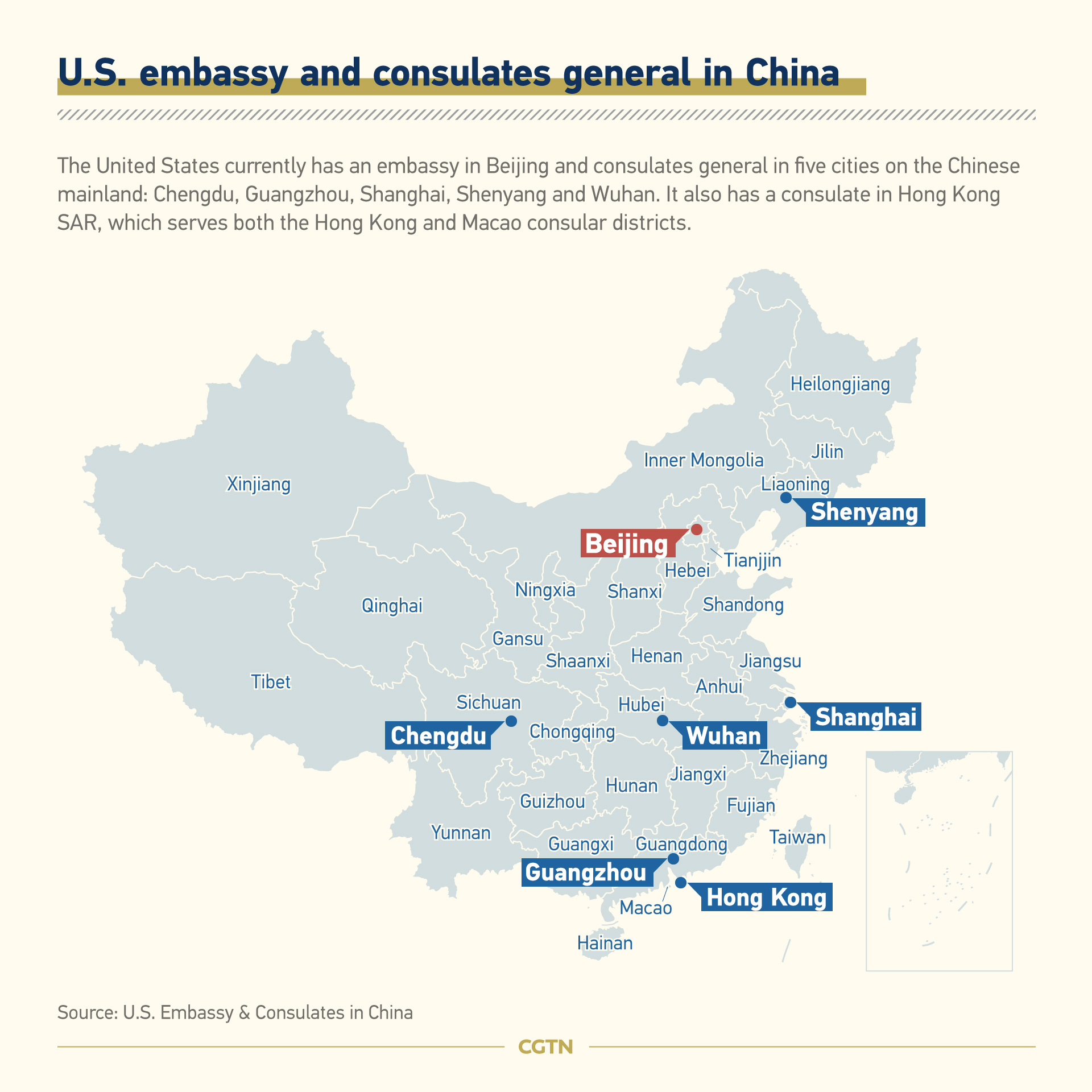
What experts say about China's countermeasure
The U.S. consulate general in Chengdu was established in 1985, and it covers the southwestern part of China, which includes Sichuan Province, Tibet Autonomous Region and Chongqing Municipality.
Following China's decision of countermeasure, experts have said that the core principle behind the decision is seeking equality in diplomatic exchanges while China is also avoiding sending out a strong message of a divided China-U.S. relation.
Shen Yi, an expert on U.S.-related issues at Shanghai-based Fudan University, told the Global Times that the move sent a clear signal to the U.S. that China does not intend to damage the Sino-U.S. relations, but it will surely fight back this kind of abrupt move.
If China does nothing in the beginning, it runs the risk of gradually being trapped into a situation of having to making compromises for each move made by the U.S., Shen said.
Meanwhile, Li Haidong, a professor with the Institute of International Relations Studies under China Foreign Affairs University, told the news outlet that China is also dealing with the issue in a restrained way that tries to prevent a sudden escalation of China-U.S. tensions.
He said that among all the U.S. embassy and consulates general in China, the Chengdu consulate general covers relatively smaller scale of regions and thus it would only affect a limited number of U.S. citizens and enterprises.
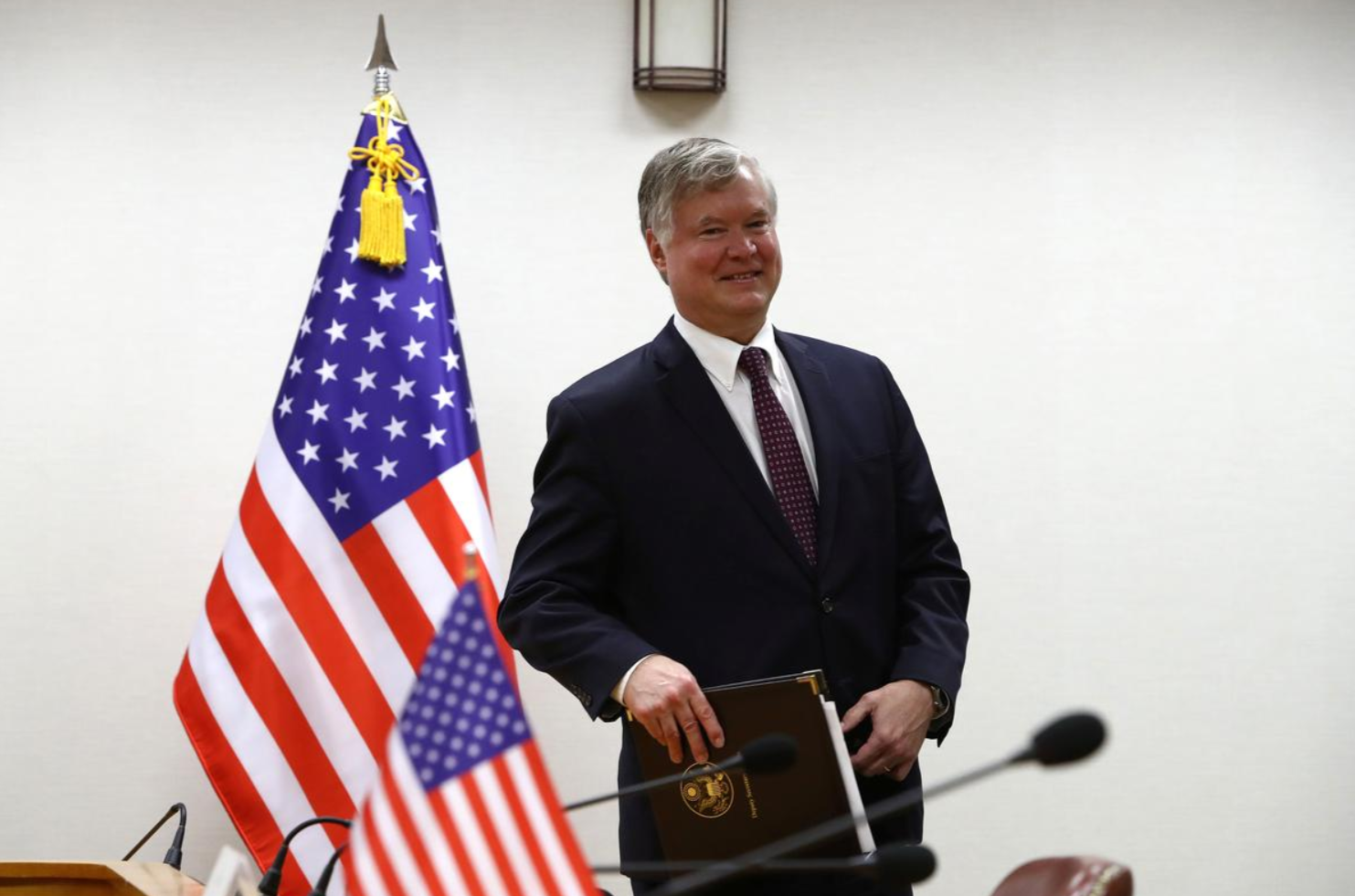
U.S. Deputy Secretary of State Stephen Biegun attends a meeting at the foreign ministry in Seoul, Republic of Korea (ROK), July 8, 2020. /Reuters
U.S. Deputy Secretary of State Stephen Biegun attends a meeting at the foreign ministry in Seoul, Republic of Korea (ROK), July 8, 2020. /Reuters
Reciprocity in diplomacy
On the Sino-U.S. ties, CGTN also asked the Foreign Ministry's spokesperson during Friday's daily briefing whether China is willing to cooperate with the U.S. on resolving the issue of the Democratic People's Republic of Korea (DPRK)'s denuclearization despite the escalating tension between the two sides.
The spokesman noted that China pursues an independent foreign policy, whether it is to develop friendly and cooperative relations between China and the DPRK, or to handle affairs on the peninsula, China will judge the situation based on its own position to promote the political settlement of the Peninsula issue.
As on Wednesday, despite tensions between Washington and Beijing, U.S. Deputy Secretary of State Stephen Biegun said that the United States and China can still work together against the DPRK's development of weapons of mass destruction.
The senior U.S. diplomat said there is much more China could do to enforce binding sanctions and prevent sanctions evasion, adding that the U.S. will continue to engage the Chinese on that issue.
(CGTN's Su Yuting also contributed to the story.)